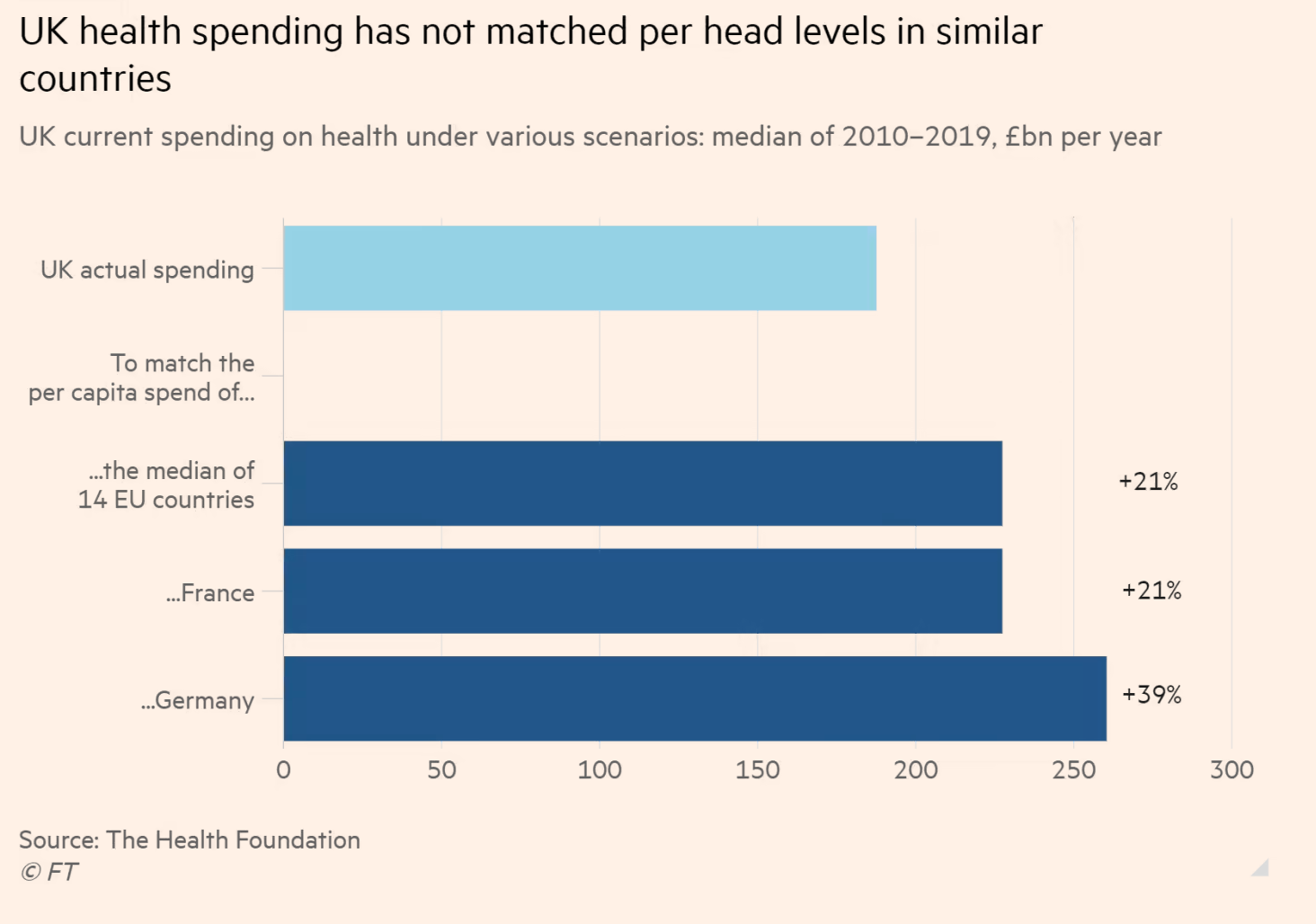ks.234
Half way to Infinity
This morning the Daily Mail tells us that “Our health service, and its model of taxpayer-funded provision, is failing”.
Our health service is not funded by the taxpayer and it is this mistaken belief that it is, that is the biggest threat to our NHS.
https://www.dailymail.co.uk/news/article-12264717/DAILY-MAIL-COMMENT-Radical-treatment-NHS-100.html
The whole article is written full of inaccuracies and regurgitated myths, but the taxpayer myth is the most pernicious
Our health service is not funded by the taxpayer and it is this mistaken belief that it is, that is the biggest threat to our NHS.
https://www.dailymail.co.uk/news/article-12264717/DAILY-MAIL-COMMENT-Radical-treatment-NHS-100.html
The whole article is written full of inaccuracies and regurgitated myths, but the taxpayer myth is the most pernicious


